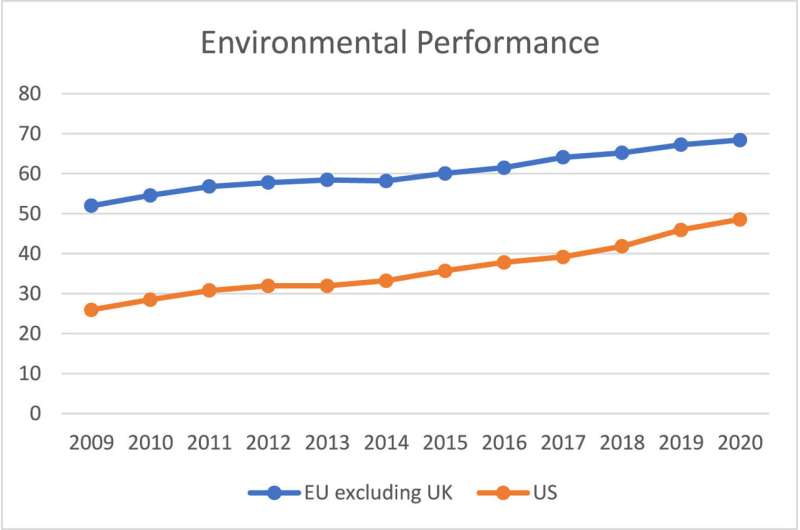This article has been reviewed according to Science X's editorial process and policies. Editors have highlighted the following attributes while ensuring the content's credibility:
fact-checked
trusted source
proofread
When climate reporting fails to create impact

Some of New Zealand's biggest companies submitted their first mandatory climate-related disclosures this year, but a new study shows disclosure doesn't guarantee better behavior.
This year, New Zealand became among the first countries in the world to force their largest companies and financial institutions (about 200 in all) to disclose their climate-related risks and opportunities in their annual reports, and make regulatory filings.
Over the last month, these reports have been filed under the disclosure regime led by the Financial Markets Authority. But do these kinds of initiatives improve environmental outcomes?
A new study, co-authored by Professor Charl de Villiers (University of Auckland, Business School) finds that mandating social and environmental disclosures doesn't necessarily improve businesses' performance. The study, "Does mandating corporate social and environmental disclosure improve social and environmental performance?: Broad-based evidence regarding the effectiveness of directive 2014/95/EU," is published in The British Accounting Review.
"It's important we don't assume that if we force companies to disclose information, they are actually going to do better by the environment and people," says Professor de Villiers.
Professor de Villiers and his fellow researchers examined the effects of a prominent EU sustainability reporting initiative, Directive 2014/95/EU, which came into effect in 2017.
The legislation requires large companies to report their performance on non-financial matters, including environmental issues, social and employee matters, human rights, anti-corruption and bribery.
But after analyzing a cross-country sample of businesses between 2009 and 2020, the researchers found that social and environmental outcomes didn't meaningfully improve after the Directive.
"Despite the regulatory push, European companies didn't exhibit substantial improvements in their social and environmental performance, nor did they improve when compared to US companies.
"The findings are surprising," says Professor de Villiers. "It's important that we don't assume that if we force companies to disclose information, they are actually going to do better by the environment and people."
The study, says de Villiers, provides broad-based evidence of the ineffectiveness of mandating corporate social and environmental disclosures to enhance performance.
"We show that you can't just put out a piece of legislation like this and assume things will improve. You really have to design it in such a way that there are meaningful sanctions for non-disclosure," he explains.
The EU Directive's relative ineffectiveness may be partly due to its lack of detailed guidelines, auditing requirements and weak penalties for non-compliance, he says.
"For Aotearoa New Zealand, and other countries wanting to see meaningful progress, this highlights the importance of coupling clear disclosure requirements with specific guidelines, rigorous auditing and strong enforcement mechanisms," Professor de Villiers adds.
New Zealand's Financial Markets Authority has indicated it will adopt a "broadly educative and constructive approach," at least in the first year or so, only taking enforcement action against companies and financial institutions where they fail to file their disclosure statements or where the statements are misleading or deceptive.
It could start getting tougher from 2026.
More information: Charl de Villiers et al, Does mandating corporate social and environmental disclosure improve social and environmental performance?: Broad-based evidence regarding the effectiveness of directive 2014/95/EU, The British Accounting Review (2024). DOI: 10.1016/j.bar.2024.101437
Provided by University of Auckland





















